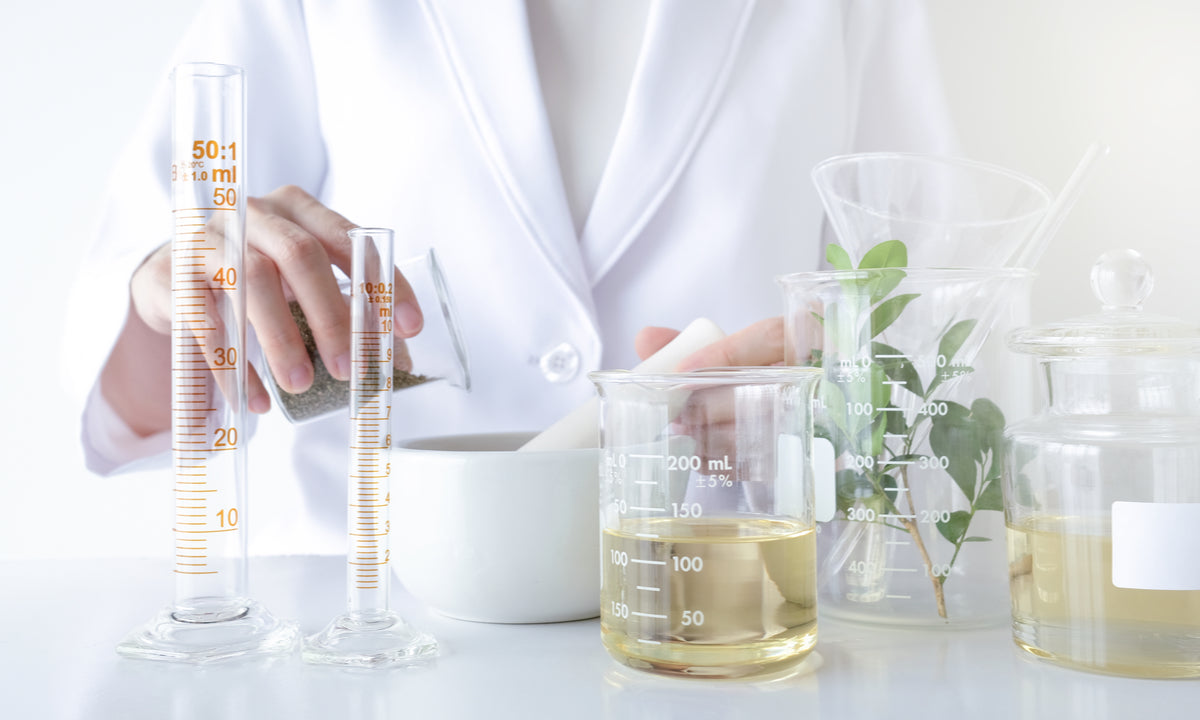Your Cart is Empty
FREE SHIPPING on US orders over $45. Save 25% With Code TAKE25 at checkout.
FREE SHIPPING on US orders over $45. Save 25% With Code TAKE25 at checkout.

Thanks to the internet and old wive’s tales, there is SO much skincare and beauty advice out there that it can be hard to know what to believe. In fact, some of this “advice” can actually be harmful to your skin health and overall appearance.
Below are seven popular — but busted! — beauty myths, along with the science to show exactly why they don’t hold up.
Not true! It’s never too early to start fighting the visible signs of aging.
The anti-aging ingredients you want to look for are the same for everyone, regardless of age. Much like what you eat: what’s healthy for someone in their 20s is healthy for someone in their 60s.
What will work best for you depends on your skin type and the results you’re going for:
But the #1 ultimate anti-aging product across the board, no matter what? Sunscreen.
Every anti-aging skincare routine (no matter your age) should start with daily sunscreen rated SPF 30 or greater.
Some beauty brands want you to believe that skincare is a luxury. That means fancy labels, pricey packaging, expensive marketing, and more $$$ from you.
But, in general, expensive products don’t always mean better results. There are a ton of great, affordable options out there along with some not-so-great expensive ones.
Of course, some ingredients are more expensive to source than others. Concentration of certain ingredients and potency can also affect price.
Whether you decide on a $20 drugstore favorite or a triple digit splurge, it’s most important to always choose products based on your skin type and skincare concerns. A pricey serum formulated for dry skin won’t work as well for someone with oily skin, so make sure the products you choose are meeting your individual skincare needs.
Beware of any topical product that “works better than Botox.” Even Botox doesn’t work like Botox when applied topically (it needs to be injected into the muscles of the face).
There is no research to indicate that peptides (or any other skincare ingredient) can work like Botox or any other procedure performed by a physician.
But! Peptides are still remarkable ingredients that have amazing benefits for skin — just don’t expect immediate Botox-like results.
It may feel or look good to get a tan, but the research on tanning beds is 100% clear: they are toxic for skin.
According to the American Academy of Dermatology (AAD), getting a base tan cannot prevent sunburn. The idea that a base tan can somehow protect skin from burning is completely untrue. If you have a base tan, you can still burn.
For a sun-kissed glow without the risk, consider sunless tanning products. Most self-tanners do not contain SPF, so remember to always apply sunscreen if you’ll be spending time outdoors.
No matter your skin type, you need to be using some type of moisturizer to balance and nourish your skin. The differences lie in the type and amount of moisture your skin needs.
Oily skin types need to be especially diligent about using moisturizer (the exact opposite of this skincare myth!). Oilier skin must be kept from drying out so it won’t over-produce oil to compensate. A hydrating serum or lightweight lotion is great for this (versus a heavy cream, which is typically better suited for dry skin).
If only this were true! If you’ve ever had to endure an embarrassing breakout later in life, you know that adults can have acne just like teenagers.
Also true: having clear skin as a teenager doesn’t mean you won’t get acne later in life. Dermatologists call this adult-onset acne, and it is most common in women going through menopause.
This one is simply not true. There is a proven connection between nutrition and skin health, which means that naturally gorgeous skin starts with your diet.
If something in your diet is messing with your skin (sugary foods and dairy are the most common culprits), even the very best skincare routine won’t be able to solve the problem.
For more information on the best foods to eat (and what to avoid) for a healthy, glowing complexion, check out our guide to nutrition and skin health.